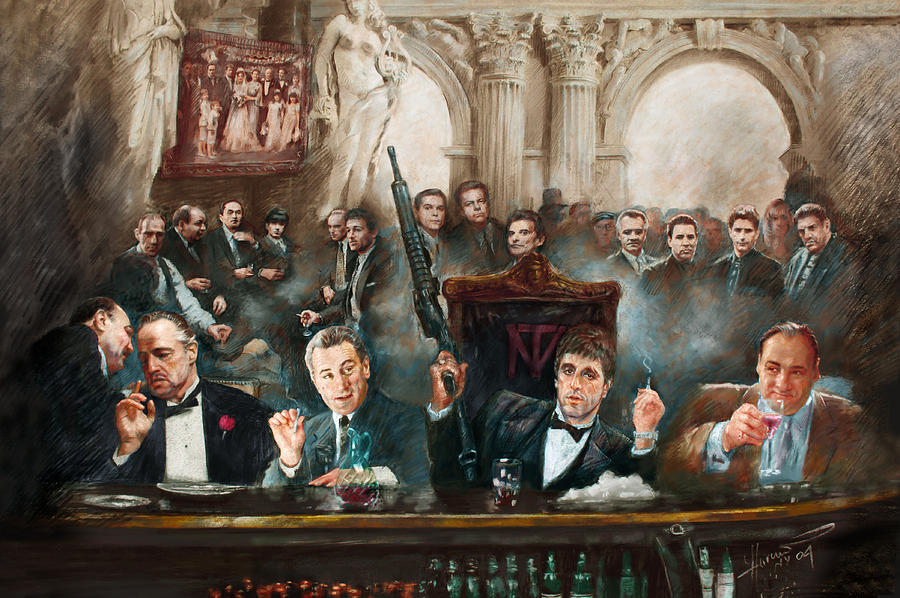
Andrew Lau and Alan Mak direct “Infernal Affairs”, a 2002 crime thriller that takes place in Hong Kong. A hit at the time of its release, it achieved a certain level of international success, enough to catch the attention of american film legend Martin Scorsese. He then went on to remake the film with Leonardo DiCaprio, Matt Damon and Jack Nicholson in 2006; the title of the remake was “The Departed”, what propelled Scorsese to his first ever Best Picture and Director Oscar in his career, and the rest is history. Being a big fan of “The Departed” I wanted to watch the original version for quite some time now, and now I’ve finally gotten around to do it. While I did find Lau’s and Mak’s film to be pretty good and entertainment, I can’t deny that it pales in comparison to Scorsese’s treatment of the story. And yet, it is actually unfair to compare the movie (or any other movie for that fact) with one of the masterpieces of one of the greatest living directors, but its inevitable since I saw “The Departed” way before watching this one. Still, I’ll try to refrain from drawing too heavy comparisons in this review.
If you’ve seen “The Departed” you know the basic story: Chan (Tony Leung) is an undercover police officer working as a mole in a Hong Kong triad ruled by Hon Sam (Eric Tsang). At the same time, Sam has Lau (Andy Lau) infiltrate the police department to spy on their operations and always be one step ahead of them. As both parties become aware of the situation, both Chan and Leung are tasked with finding themselves and each other.
The film has a pretty interesting and entertaining story that gives rise to all sorts of moral and existential questions: does being on either side of the law define you as a human being? Can someone decide whether he or she is good or bad? Is our identity defined by how we’re archived in the system? And while I already knew the outcome of the story, it was still interesting to see how the Hong Kong filmmakers dealed with certain situations compared to the american version. Directors Lau and Mak manage to handle narrative tension particularly well. Also, there are some positive differences narrative wise with the Scorsese film, beyond the Boston setting and different characters: for example, the first meeting between Sam and and Superintendent Wong (Anthony Wong) is handled differently, and it lets a different kind of dynamic ensue. Directors Lau and Mak manage to handle narrative tension particularly well
That being said, and I know I said I would try not to compare, but it is basically impossible now, I can’t help it but “The Departed” is superior to “Infernal Affairs” in virtually every aspect. Almost the entire first act of Scorsese’s film is done here in the first ten minutes, what ultimately compromises our investment in the main characters. Also, Hon Sam is a much weaker character than Frank Costello (Nicholson): whereas Costello is a psychopathic, power-addicted and yet strangely charming gangster, Sam is just another mobster boss with nothing to differentiate him from other similar figures within the genre. And somehow, Scorsese’s version maages to be much subtler than the original, and we all know that Scorsese is everything but subtle. The recurring flashbacks to thing we’ve already seen in the movie, the use of generic and emotionally sugestive music, it all adds up to a kind of by-the-numbers experience.
It may seem that this review rather falls on the negative side, but I want to reiterate that “Infernal Affairs” is in fact a good movie and a very enjoyable one too. Like I said, it is kind of unfair for it to be compared with one of Scorsese’s strongest films, but that’s the way it is. Lau and Mak did a pretty solid flick, its only that Scorsese did the same film better just a couple of years after the release of the original. Still, it is a very good movie and it even spanned two sequels (though to be honest, I’m not that interested in seeing them). If you haven’t seen “The Departed” I’d suggest you watch this one first, that way you can enjoy the film for what it is and not on how it was done better later, and even if you have seen Scorsese’s version and liked it its pretty interesting to see where it all came from. This might be one of the few cases in which a remake improved on the original, but then again, the talent behind the remake makes it an unfair game altogether. Still, I’m pretty sure many of you will disagree with me and actually liked “Infernal Affairs” better,; I would certainly like to know your thoughts on this!

If you liked this review please leave a like and share it with your friends and family. Also, if you want to stay up to date with the content this blog produces don’t forget to follow. Until next time!




